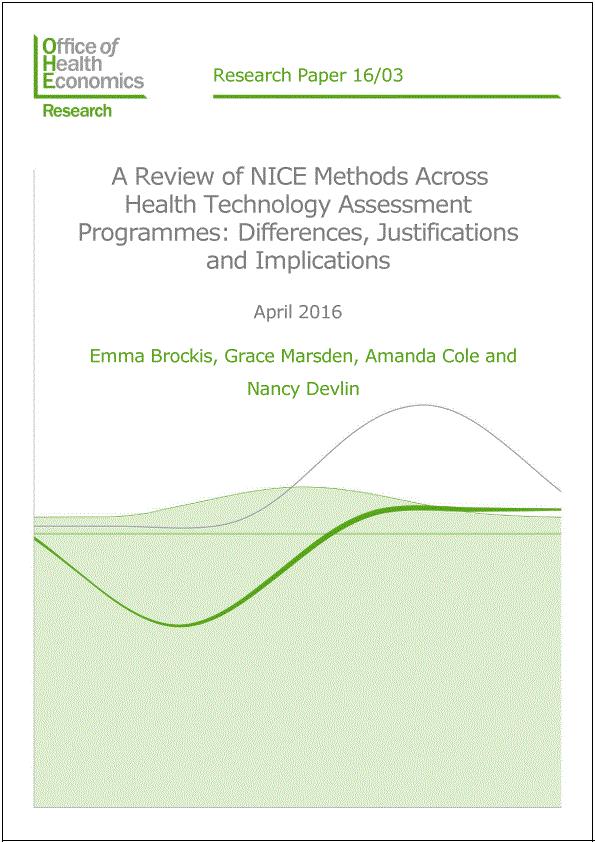Socio-Economic Value of Adult Immunisation Programmes

NICE’s decisions exert an influence on the allocation of fixed NHS budgets, but decisions for different types of health interventions (for example drugs and devices) are handled via different ‘programmes’ within NICE.
This research involved a systematic comparison of…
NICE’s decisions exert an influence on the allocation of fixed NHS budgets, but decisions for different types of health interventions (for example drugs and devices) are handled via different ‘programmes’ within NICE.
This research involved a systematic comparison of five of NICE’s HTA programmes: Technology Appraisal Programme, Medical Technologies Guidance, Diagnostic Assessment Programme, Highly Specialised Technologies Programme, and Clinical Guidelines. The aim was to establish how differences in methods and processes between the programmes may impact on allocative efficiency within the NHS.
Data were extracted from the NICE programme manuals and eight qualitative interviews were carried out with NICE employees and committee members to explore the reasons for the differences found.
Key differences between programmes were found in the methods of evaluation, specifically the provision of a reference case, the requirement for and type of economic analysis, and the decision making criteria used for appraisal.
The authors find that whilst many of the differences found may be justified on grounds of practicality, from a strict utilitarian (or QALY-maximisation) view there are several potential areas of inefficiency.
Please note a version of this paper has also been published in Applied Health Economics and Health Policy.
A Review of NICE Methods Across Health Technology Assessment Programmes: Differences, Justifications and Implications
Brockis, E., Marsden, G., Cole, A., and Devlin, N.
(2016) A Review of NICE Methods Across Health Technology Assessment Programmes: Differences, Justifications and Implications. OHE Grant-Funded Research. Available from https://www.ohe.org/publications/review-nice-methods-across-health-technology-assessment-programmes-differences/